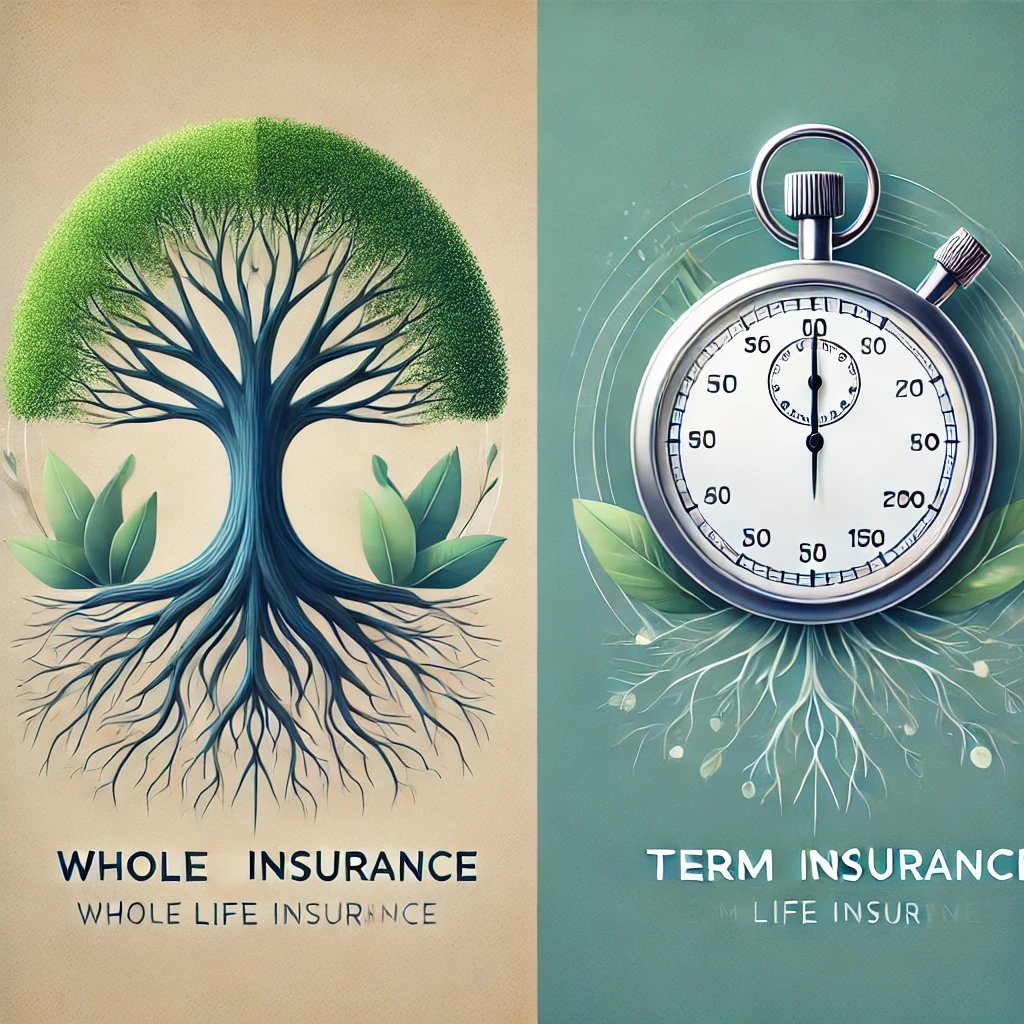Understanding Whole Life Insurance vs. Term Life Insurance

The Guardian My Life Journal
January 18, 2025
Introduction
Choosing the right life insurance policy can feel overwhelming, especially with terms like “whole life” and “term life” insurance. Both options offer valuable benefits, but they serve different purposes depending on your goals and financial situation. Let’s break down the key differences so you can make an informed decision.
1. What is Whole Life Insurance?
Whole life insurance is a permanent policy designed to last your entire life as long as you continue to pay your premiums. In addition to providing a death benefit, whole life policies build cash value over time.
Key Features of Whole Life Insurance:
• Lifetime Coverage: Protection that lasts for your entire life.
• Cash Value Accumulation: Builds a savings component that you can borrow against.
• Fixed Premiums: Your premium amount stays the same for the life of the policy.
Best for: Individuals who want lifetime coverage and a financial asset they can access in emergencies.
2. What is Term Life Insurance?
Term life insurance provides coverage for a specific period (e.g., 10, 20, or 30 years). If you pass away during the term, your beneficiaries receive the death benefit. Once the term ends, coverage may expire unless you renew or convert the policy.
Key Features of Term Life Insurance:
• Temporary Coverage: Protects you for a set period.
• Lower Premiums: Typically more affordable than whole life insurance.
• No Cash Value: Only provides a death benefit with no savings component.
Best for: Individuals who want affordable coverage for a specific financial need, such as paying off a mortgage or supporting dependents until they become independent.
3. Whole vs. Term Life Insurance: A Side-by-Side Comparison
| Features | Whole Life Insurance | Term Life Insurance |
Coverage Length | Lifetime | Fixed term (e.g., 20 years) |
| Cash Value | YES | NO |
| Premium Amount | Fix | Typically Lower |
| Cost | Higher | Lower |
| Purpose | Lifetime Protection and Savings | Temporary Protection for Specific Needs |
4. Which One is Right for You?
When choosing between whole life and term life insurance, consider your goals:
• If you want lifelong coverage with the ability to build cash value, whole life insurance may be the best choice.
• If you need affordable coverage for a specific time period, term life insurance is likely the better fit.
• In some cases, combining both policies can provide balanced protection.
Conclusion
Whole life and term life insurance both offer unique benefits. The key is to understand your financial goals and choose a policy that aligns with your needs. Need help deciding which type of life insurance is right for you? Visit our Contact Us page to request a personalized consultation today!
#WholeLifeInsurance #TermLifeInsurance #FinancialPlanning #LifeInsuranceBasics #GuardianMyLife